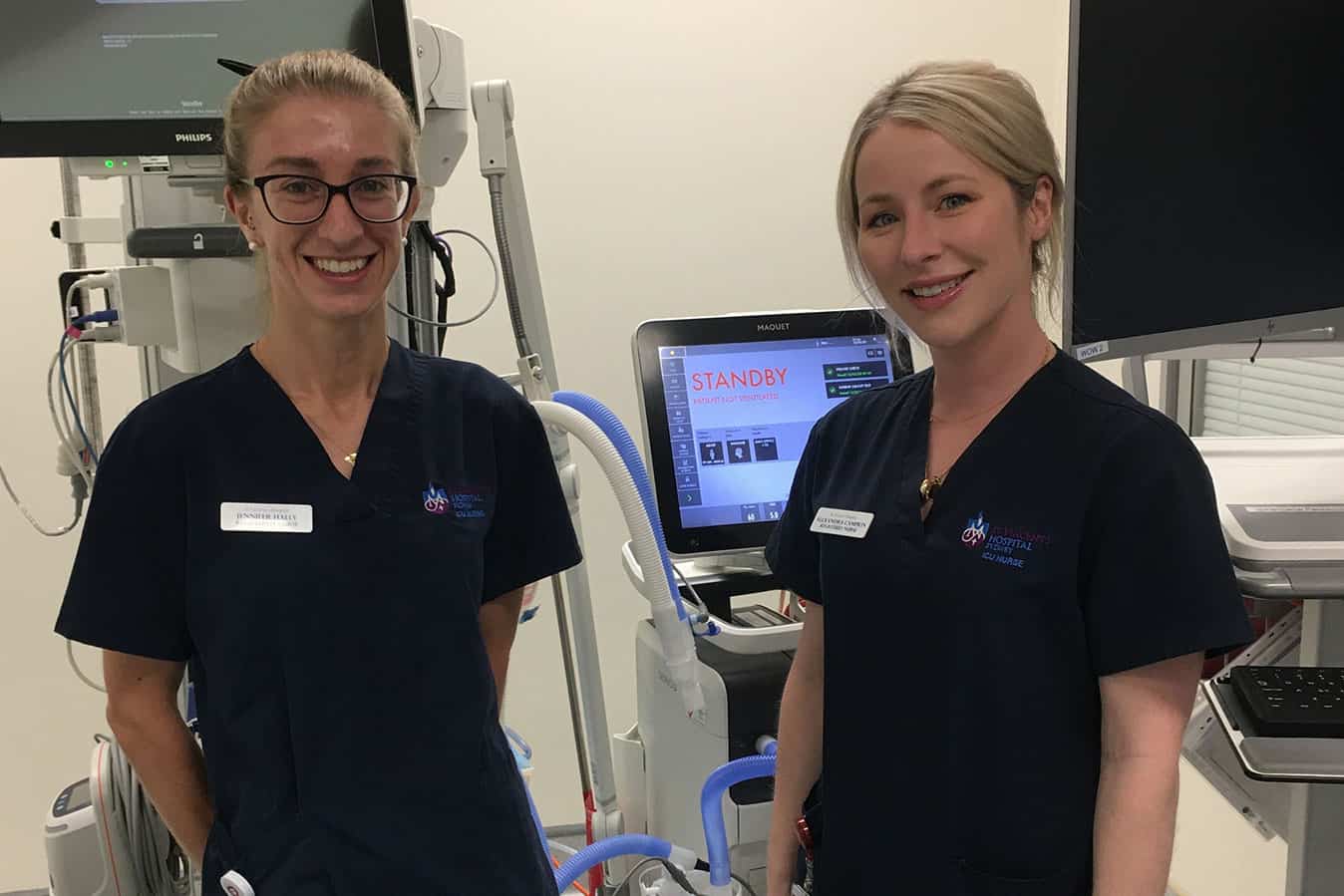Having experienced the culture shock of moving from undergraduate study into the workplace firsthand, registered nurse Jennifer Hally decided to become a preceptor and role model to early career nurses and new staff members.
In nursing, preceptors are experienced nurses formally assigned to provide transitional support to students, graduate nurses and newly employed staff navigating a new working environment.
Responsibilities include mentoring, education, helping the preceptee develop their professional identity and making them feel welcome on the ward and part of the team.
Jennifer works in the Intensive Care Unit (ICU) at St Vincent’s Hospital in Sydney, stepping up to the position of Team Leader on many shifts to manage patient flow, allocate staff and support nurses at the bedside.
“I will never forget how daunting it was as a student on my very first placement walking into the ward,” Jennifer recalls.
“It was beyond terrifying but after meeting one of my first preceptors I was quickly put at ease. I wanted to be like her. To provide valuable teaching and learning experiences to nursing students and new staff members, just like I had.”
As a preceptor, Jennifer helps fledgling nurses set realistic goals as they gradually build sound clinical judgement.
She says a good preceptor must be approachable and facilitate an environment conducive to learning.
In her view, key attributes that make a good preceptor include:
- Good communication skills
- Patience
- Being a competent clinician
- Sound clinical knowledge
- Empathy
- Professionalism
Jennifer believes her decade of experience as a nurse across a variety of clinical settings stood her in good stead when she committed to becoming a preceptor.
She suggests many early career nurses struggle with time management and prioritisation and seek advice from preceptors on strategies to help them juggle their workload.
They also typically want help in implementing the theory they learned at university into their everyday practice.
On a personal level, Jennifer says being a good preceptor also means balancing her own workload and daily patient allocation.
“Often it may not be appropriate to preceptor someone on a shift where you have a particularly complex patient as it can increase your workload dramatically and compromise patient care.
“It may also lead to the preceptee having a negative experience due to a lack of time to teach and support them because of the overwhelming workload.”
Jennifer says seeing a preceptee grow and become competent within their own capabilities brings the greatest reward.
“To see them troubleshoot issues and work effectively within their own scope of practice [is always rewarding]. Positive feedback on my performance as a preceptor is always lovely too and helps me reflect on what I could do better for them next time round.”
Jennifer’s advice to nurses considering becoming a preceptor is to properly consider the time and energy required to nurture and support early career nurses.
“Don’t’ become one if you are not keen to teach and help facilitate a conducive learning environment. A good and enthusiastic preceptor can set the path for someone in their nursing career. It can determine whether they choose to stay in nursing or not.”








